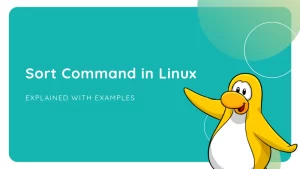
On Red Hat Linux /CentOS 7 or 8, install dig and nslookup using the dnf command. or yum command # yum install bind-utils Upon successful installation, verify the version using the command below. # dig -v
We can compare a filesystem to a refrigerator, or any other storage with multiple shelves that is used for storing different items. These shelves or compartments help us to organize grocery items in our refrigerator by certain characteristics, such as shape, size, type, and so on. The same analogy is applicable to a filesystem, […]
Install Lempp If Don’t how install Lampp server see this tutorial Creating WordPress MySQL Database Our WordPress will require a database and a database user. To create one, simply use the following commands. Feel free to replace the database name, user and password as per your preferences: # mysql -u root -p […]
Step 1: Log in to your WHM. Step 2: Click the Package icon. You can also find this section by searching for the word “package” in the search bar Step 3: Go to Add a Package. Step 4: Type a name for Package. Step 5: Select the desired amount of resource in Package. Step […]
About cPanel cPanel is a convenient application that allows users to administer servers through a GUI interface instead of the traditional command line. Although the installation for cPanel is relatively simple, the script does take several hours to run. Notes Once cPanel is installed, it cannot be removed from the […]
Introduction Like most other Linux distributions, CentOS 7 uses the netfilter framework inside the Linux kernel in order to access packets that flow through the network stack. This provides the necessary interface to inspect and manipulate packets in order to implement a firewall system. Most distributions use the iptables firewall, which uses the netfilter hooks to […]
Introduction Any service that is exposed to the internet is susceptible to attacks from malicious parties. If your service requires authentication, illegitimate users and bots will attempt to break into your system by repeatedly trying to authenticate using different credentials. A common example of this is with SSH, which will […]
Introduction While connecting to your server through SSH can be very secure, the SSH daemon itself is a service that must be exposed to the Internet to function properly. This comes with some inherent risk and offers a vector of attack for would-be assailants. Any service that is exposed to […]
MariaDB server is a community developed fork of MySQL server. Started by core members of the original MySQL team, MariaDB is designed as a drop-in replacement of MySQL(R) with more features, new storage engines, fewer bugs, and better performance.MariaDB can be an better choice for choice for database professionals looking for a robust, scalable, and reliable SQL server. In […]
Introduction A LEMP software stack is a group of open source software that is typically installed together to enable a server to host dynamic websites and web apps. This term is actually an acronym which represents the Linux operating system, with the ENginx web server (which replaces the Apache component of a […]




















